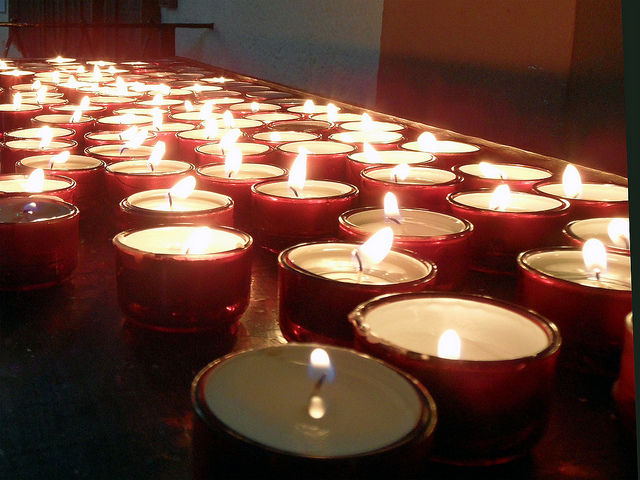Written by Rabbi Dovid Gurevich, Co-Director of Chabad House at UCLA
Rabbi Yisrael ben Eliezer, the founder of the Chassidic movement and known as “the Baal Shem Tov” (“possessor of a good name”), famously interpreted the Mishnah’s dictum regarding the laws and practices of Purim that “One who reads the Megillah [Book of Esther] retroactively does not fulfill his obligation,” in an allegorical way. The Baal Shem Tov explained that “one who reads the Megillah and thinks that the story is only a matter of the past historic events, with no bearing or lessons for our lives today, does not fulfill his obligation [to hear it read during the Purim holiday].” Although this year Purim falls out during spring break (from Wednesday night to Thursday, March 23-24), its lessons are extremely relevant to us today, perhaps more than ever.
One of the most puzzling verses in the entire Book of Esther (9:27) states “The Jews established and accepted upon themselves… to celebrate the two days [of Purim] annually.” Why the double expression of “established and accepted”? The Talmud (Shabbat 88a) has a fascinating interpretation: that the Jews in the time of Purim story established and reaffirmed what they had accepted a millennium prior to that at Mount Sinai — the Torah! Before the Jews were given the Torah at Sinai, the Talmud relates, God held the mountain over them and said, “If you accept it, fine, but if not, this will be your burial place.” Nice threat, huh?! But, the Talmud continues, in the events of the Purim story, the Jews accepted the Torah again, this time voluntarily.
How are we to understand this? At the time of revelation at Sinai, the Jews were on a high spiritual level and experienced amazing miracles and wonders, yet during the times of Purim they were in exile, downtrodden, persecuted, and slated for annihilation. Why, specifically then, were they able to truly accept the Torah?
Rabbi Judah Loew ben Bezalel, a 16th-century Jewish leader and sage known by his acronym of “Maharal,” explains that the miraculous events of the Exodus and Sinai consumed the Jews with fiery love for God, so any acceptance under such intense conditions could not constitute a true choice and commitment. Would you say no if God directly asked you to do something? However, in the days of Purim, centuries after the revelation at Mount Sinai, the Jews remained committed to Torah and God, despite the godless, anti-Semitic and genocidal nature of the times.
Chassidism further explains that the Jews’ sacrificial commitment during the year of Haman’s genocidal decree warranted that they now truly established their Torah allegiance. Their choice was real, they could have walked away from their Jewish identity to save their own and their children’s lives. Yet, their steadfast dedication to Judaism clearly showed the Torah was their essence for which they were willing to give the ultimate sacrifice.
Jewish people in the last century went through the crucible of genocidal, godless and virulently hateful threats of Nazism and Communism. Through much sacrifice and difficulty, our parents, grandparents and ancestors survived pogroms, expulsions, upheavals, migrations, death camps and wars. They rebuilt lives, resettled Israel, and reestablished Torah and community institutions throughout the world.
The Lubavitcher Rebbe points out that the Jews “established and accepted” the Torah during Purim well after the threat was over and their situation was vastly improved. Thus, he teaches, after the great challenges of hatred, poverty, and murderous ideologies, we must confront and overcome the ultimate challenge of…. prosperity!
A powerful video of Dustin Hoffman rediscovering his Jewish roots is trending now, reaffirming that he is a Jew and marveling at his great-grandmother’s heroic survival for him to be here. Hoffman’s family suppressed their Jewish identity in an attempt to assimilate into the American dream and prosperity, to put behind the struggles of the past in order to attain acceptance within the larger society and a measure of material success. Jews, in the past decades, have succeeded at that all too well. American Jewish communities have attained an overall affluent and materially successful status, but most of us have assimilated and lack commitment to Judaism.
It is our generation’s great challenge (and privilege!) to stand up and reclaim our heritage, to reaffirm our commitment to our Jewish identity and authentic expressions of it, to educate ourselves in Torah’s wisdom and become enriched spiritually. Our ancestors indeed sacrificed a lot for us to reach this point, to ensure that Hamans and Hitlers did not win. What is required of us is to sacrifice a bit of our apathy, of our time and effort, of our material prosperity, not only to survive, but in order to flourish and bring about Judaism’s vision of a global brighter future into reality.
Good luck with finals, and Happy Purim!
—
This article is part of Ha’Am’s Friday Taste of Torah column. Each week, a different UCLA community member will contribute some words of Jewish wisdom in preparation for Shabbat.

